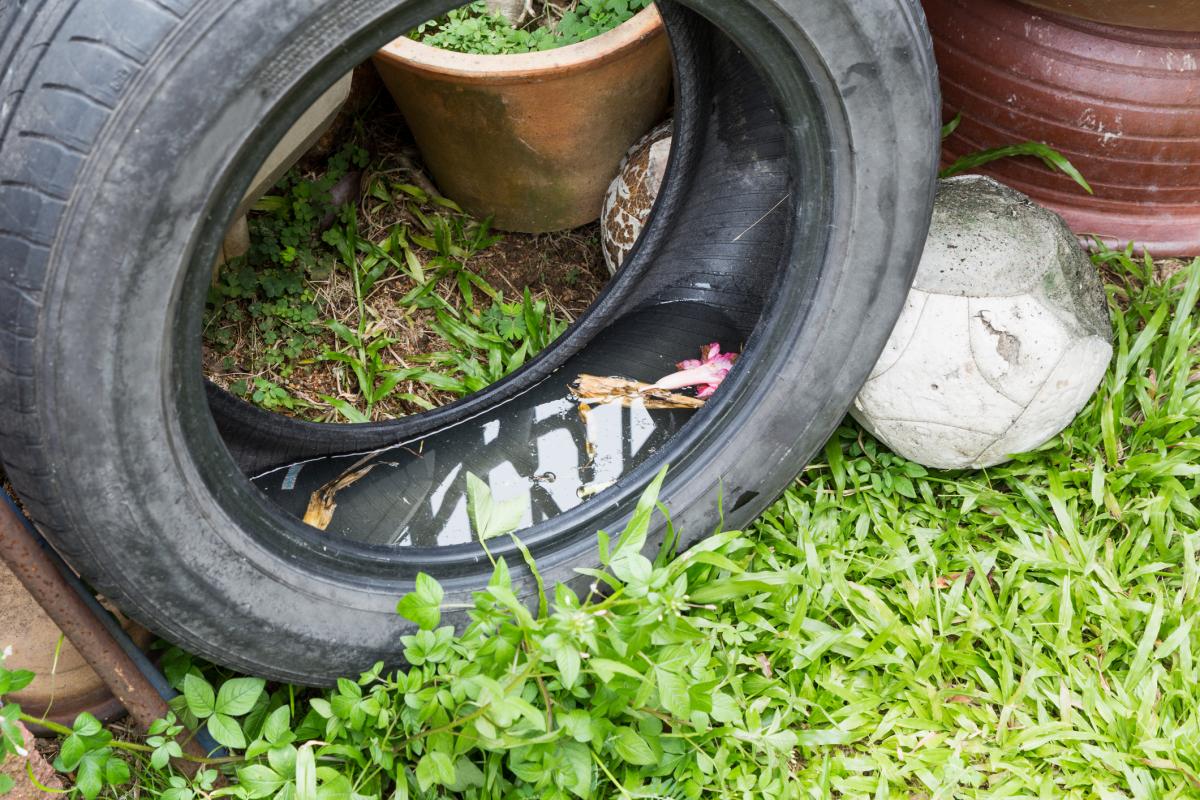Unlike other summer annoyances like poison ivy and bee stings, our public health inspectors pay special attention to mosquitoes because they have the potential to carry a disease called West Nile virus. West Nile virus – and its mosquito carriers – flew onto our radar back in 2002 when we saw the first cases appear in Canada. Protecting against this potentially serious disease is the reason we want to help people avoid becoming a meal for these insatiable summer biters.
The good news is it’s actually only one type of mosquito that carries West Nile virus; the rest will make you just as itchy but won’t pass on the virus. But when a mosquito is buzzing around your head it’s hard to tell what type it is, so it’s best to avoid bites altogether.
When it comes to preventing West Nile virus, we have to work together. There are some things Public Health can do on a large scale to prevent mosquitoes from breeding, and there are some things you can do yourself.
What we can do
Monitor disease movement and trends
We look at mosquito activity on a large geographic scale. By tracking the numbers, species and location of mosquito populations in our communities we can make decisions that will benefit a large number of residents.
Identify the bad guys’ stomping grounds
Based on this surveillance work, we identify sites with standing water that have become homes to the mosquito species that carries West Nile virus. Then we work with the Canadian Centre for Mosquito Management to apply environmentally friendly larvicide, which kills mosquitoes before they get to biting age.
Treat your municipally owned catch basin
If you have a municipally owned catch basin on your property, we can treat it with larvicide. Visit our Mosquitoes & West Nile virus page for more information.
What you can do
Clean out stagnant water

If you’re looking for ways to read a novel on your balcony or play in the yard mosquito-free, your best bet is to remove stagnant or “standing” water where mosquitoes love to lay their eggs. This means dog dishes, bird baths, rain barrels and anything else that could collect water (old flower pots, tires, etc.) should be removed or cleaned regularly.
Treat pools and ponds that can’t be emptied
If you have a fish pond or swimming pool that stays closed for the summer, you can apply a larvicide called AquaBac™200G to help reduce mosquito populations (get it from Home Hardware stores, item #5047-451).
Have your catch basin treated
If you have a catch basin on your property and would like to have it treated at no cost, download the form or call Public Health at 1-800-265-7293 ext. 4753.
Prevent bites
These are our top tips for preventing bites, but you can find a full list of precautions on the Health Canada site.

- Wear light coloured clothing, including long sleeves and pants
- Use a mosquito repellent approved by Health Canada (Health Canada recommends adults and children over 6 months of age use a mosquito repellent with DEET or Icaridin.)
- Repair holes in screen doors and windows
What we don’t do
We don’t test dead birds
We used to collect birds for testing; but do not any longer. The Canadian Wildlife Health Cooperative (CWHC) may still do this; please connect with them to discuss your individual situation. Call the CWHC at 1-866-673-4781 or 519-824-4120 ext. 54662.
We don’t treat the mosquitoes that don’t carry disease
Unfortunately this means you may still have to share your deck or the trail by the river with some winged foes. Follow the precautions listed above to avoid spending your summer scratching.
What to do if you get sick
Most people who get West Nile virus won’t get sick. About 20 to 30 percent of people will develop mild symptoms like fever, body aches, mild rashes, headache and swollen lymph glands.
Less than 1 percent of people who get West Nile virus will develop severe symptoms and health effects that impact the brain and spinal cord. These can include high fever, stiff neck, nausea and/or vomiting, difficulty swallowing, drowsiness, confusion and muscle weakness.
If you’re concerned about symptoms, contact your healthcare provider immediately.
Enjoy the summer!
Mosquitoes breed when there’s warm, wet weather, so expect surges in the population when the weather doesn’t cooperate.
Plan accordingly, and enjoy your summer!
